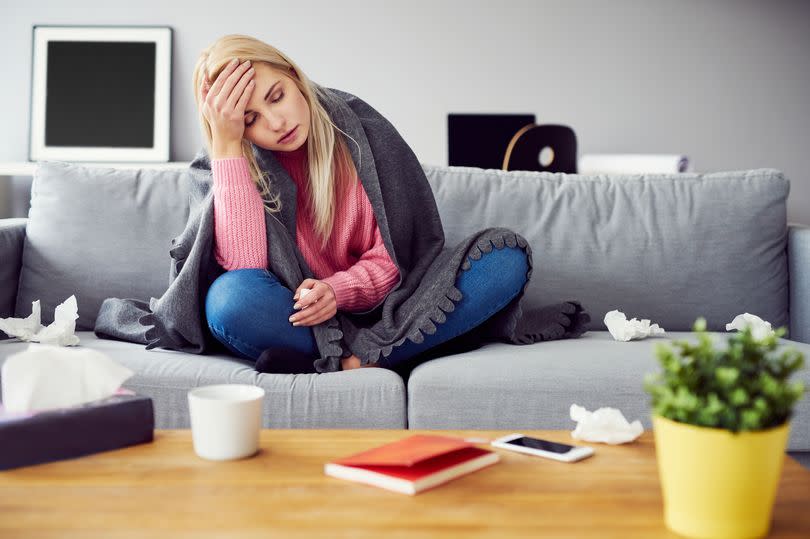Red flag symptom for bug sweeping UK as vomiting and diarrhoea cases soar

UK residents are being warned about the "main danger" of norovirus as cases skyrocket across the country, with those showing symptoms advised to stay indoors. Despite it being mid-May, the UK Health Security Agency has sounded the alarm over a surge in infections, which is unusually high for this time of year.
Norovirus, also known as the "winter vomiting bug", is a stomach bug that triggers vomiting and diarrhoea. While it can be extremely unpleasant, it typically clears up within two days, according to NHS guidance.
The virus can be highly uncomfortable but usually resolves itself within a few days, allowing people to self-care at home. The NHS has highlighted dehydration as the primary risk associated with norovirus, urging those affected to ensure they remain hydrated.
READ MORE: Test your UK knowledge in citizenship test that many struggle with
READ MORE: The SATS questions for 10-year-olds that you might not be able to get right
"Apart from the risk of dehydration, norovirus is not generally dangerous and there are usually no long-lasting effects," the NHS explains, reports the Mirror.
Symptoms of dehydration include thirst, dizziness, dark urine, and dry mouth, eyes and lips. The NHS further advises: "If you have severe dehydration get medical help again as soon as possible. (The symptoms of severe dehydration include severe thirst, dry, wrinkled skin, sunken eyes and not being able to pass urine.)".
The winter vomiting bug, norovirus, is wreaking havoc across the nation, with a 75 percent increase in cases compared to the five-year average, according to the latest figures from the UK Health Security Agency (UKHSA). The spike in cases has been attributed to various factors, including the after-effects of the Covid-19 pandemic and the unusually cold weather in May.
To combat the spread of this highly contagious virus, health officials are urging those affected to maintain high standards of personal hygiene and to stay away from work until they are fully recovered.
READ MORE: The little-known law at traffic lights that is making drivers fail their tests
Amy Douglas, a Norovirus Epidemiologist at UKHSA, commented: "Norovirus levels were higher in April than we would usually see at this time of year and have been increasing. This is likely due to a combination of factors, but the colder weather we have had won't have helped."
Douglas further advised: "If you have got diarrhoea and vomiting, you can take steps to avoid passing the infection on. Do not return to work, school or nursery until 48 hours after your symptoms have stopped and don't prepare food for others in that time either. If you are unwell, avoid visiting people in hospitals and care homes to prevent passing on the infection in these settings. Washing your hands with soap and warm water and using bleach-based products to clean surfaces will also help stop infections from spreading. Alcohol gels do not kill norovirus so don't rely on these alone."
Get daily headlines and breaking news emailed to you - it’s FREE

 Yahoo News
Yahoo News 
